Education
Exploring .375 as a Fraction: Meaning, Simplification & Practical Use
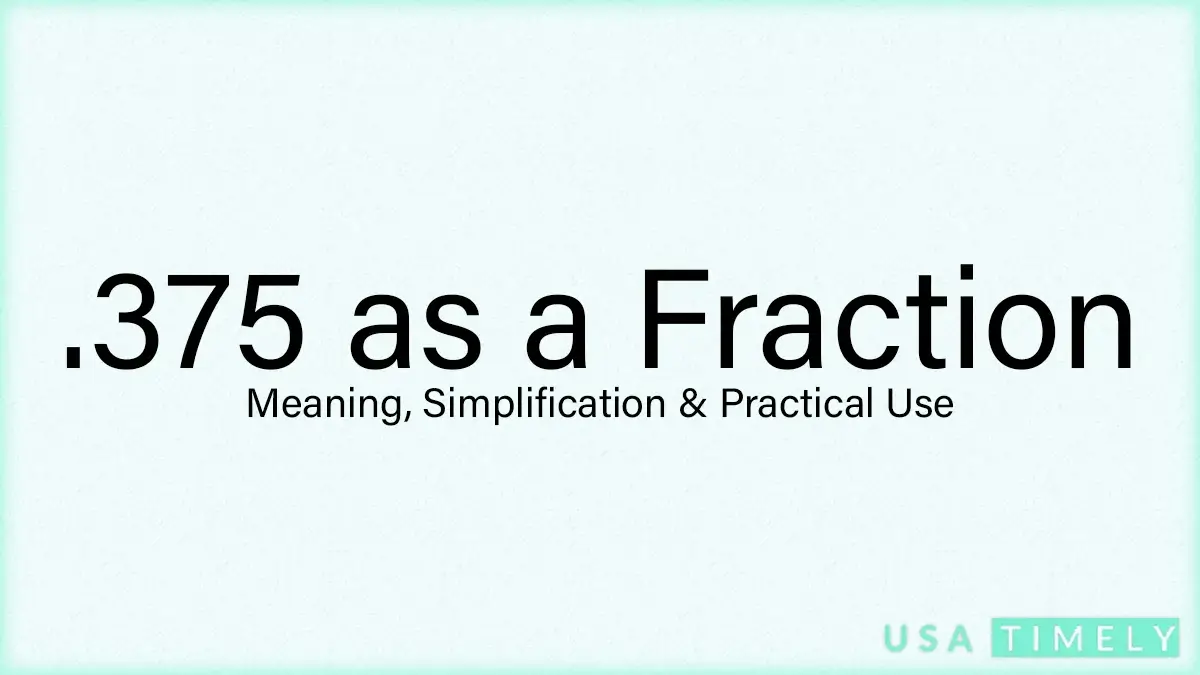
Understanding fractions can be challenging, especially with numbers like .375. This number is common in measurements, probabilities, and percentages, so it’s important to understand. In this article, we’ll explore .375 as a fraction. We’ll explain its meaning, how to simplify it, and where it’s used in everyday life. By the end, you’ll know how to express .375 as a fraction and how it relates to real-life situations.
Understanding .375 as a Fraction
What is .375?
Before we learn how to write .375 as a fraction, let’s understand what this decimal means.
Understanding .375 as a Decimal
Before we convert .375 into a fraction, let’s take a closer look at what this decimal represents.
Decimal Representation
The decimal .375 can be read as “three hundred seventy-five thousandths.” This means it consists of 3 tenths (0.3), 7 hundredths (0.07), and 5 thousandths (0.005).
Fractional Value
In terms of fractions, .375 falls between ⅓ (0.333…) and ½ (0.5). This means it’s greater than one-third but less than one-half.
Practical Examples
In real-life scenarios, .375 is commonly used in measurements, such as 3/8 of an inch, or in probabilities and statistics, representing a 37.5% chance.
Simplifying Fractions
When we convert .375 into a fraction, we find that it simplifies to 3/8. This means 3/8 is the simplest form of the fraction that .375 represents.
Application in Everyday Life
Understanding .375 as a fraction is useful for various everyday calculations, such as in cooking recipes, where 3/8 cup of an ingredient may be required, or in understanding odds and probabilities in games or sports.
Converting .375 to a Fraction
Understanding Decimal Place Value
In the decimal .375, the digit 3 is in the tenths place, 7 is in the hundredths place, and 5 is in the thousandths place. These positions are crucial for determining the fraction’s numerator and denominator.
Assigning Numerator & Denominator
To convert .375 into a fraction:
- The digit 3 in the tenths place becomes the numerator.
- The rightmost numeral, in this case 5, determines the denominator. Since it’s in the thousandths place, the denominator is 1000.
Expressing .375 as a Fraction
Constructing the Fraction
To express .375 as a fraction, we combine its digits to create the fraction 3/1000. Here’s how:
- The digit 3 represents 3 tenths, so it becomes the numerator.
- The digit 5 represents 5 thousandths, so it determines the denominator, which is 1000.
Simplification
While 3/1000 is the accurate fractional representation of .375, fractions are often simplified. In this case, 3/1000 can be simplified further. Dividing both the numerator and denominator by 125 gives us the simplified fraction 3/8.
Practical Applications
It’s useful to know how to convert decimals, like.375, into fractions in a variety of real-world situations. Measurements can be made more manageable and practical by, for example, reducing a recipe that calls for 0.375 cups of a specific item to 3/8 cups.
Enhancing Mathematical Skills
Mastering this conversion process enhances mathematical skills and helps in handling fractions and decimals in everyday situations. It also provides a deeper understanding of how numbers can be represented and manipulated in different forms.
Simplifying .375 as a Fraction
Understanding Simplification
3/1000 is the result of expressing.375 as a fraction. While this is a correct representation, fractions are often simplified to their lowest terms, also known as simplest form. This procedure entails calculating the numerator and denominator’s greatest common divisor (GCD) and dividing both by this value.
Finding the Greatest Common Divisor (GCD)
To simplify 3/1000, we find the GCD of the numerator (3) and the denominator (1000). The greatest number that divides two numbers equally is the GCD.
Simplification Process
Since 1 is the only integer that can divide both 3 and 1000 without leaving a remainder, the GCD of 3 and 1000 is 1.
Dividing to Simplify
Dividing the numerator and denominator by 1 (the GCD) gives us:
3 ÷ 1 / 1000 ÷ 1 = 3/1000
Since the GCD is 1, the fraction 3/1000 is already in its simplest form. Therefore, .375 cannot be simplified further.
Significance of Simplification
Simplifying fractions helps in easier understanding and comparison of quantities. It also makes calculations involving fractions more manageable and less prone to errors.
The Importance of Simplifying Fractions
Understanding the Concept
Although .375 and 3/1000 are equal, 3/1000 is the simplest form of the fraction. Simplifying fractions makes them easier to use and understand, especially in mathematical calculations and real-life applications.
Simplification for Clarity
When fractions are simplified, their values remain the same, but they become easier to work with. In the case of .375, simplifying it to 3/1000 makes the fraction clearer and more straightforward.
Easier Mathematical Calculations
In mathematical calculations, simplified fractions are often more manageable. For example, in adding or subtracting fractions, having them in their simplest form reduces the chances of errors and simplifies the process.
In real-life situations, such as cooking or construction, simplified fractions are more practical. For instance, a recipe calling for 0.375 cups of an ingredient is easier to understand as 3/8 cups.
Enhanced Understanding
Simplifying fractions also helps in understanding the relationship between different fractions. It allows for easier comparison and manipulation of fractions, aiding in a deeper comprehension of mathematical concepts.
Practical Applications of .375 as a Fraction
Measurements
In various industries such as woodworking, construction, and engineering, precision is paramount. Understanding that .375 is equivalent to 3/8 can be incredibly useful. For example, if you’re designing a piece of furniture and need to mark a length of .375 inches on a piece of wood, knowing it’s the same as 3/8 inches allows for more accurate and efficient work.
Probabilities
Probability is a fundamental concept in fields such as statistics, gambling, and risk analysis. Expressing .375 as 3/8 helps in understanding the likelihood of an event occurring. This fraction provides a clearer interpretation of probabilities, aiding in decision-making and analysis.
Percentages
One often encountered task in various fields, such as finance and economics, is converting decimals to percentages. .375 is equivalent to 37.5% when multiplied by 100. Understanding this conversion helps in various financial calculations, such as calculating tax rates, discounts, and interest rates.
Fraction Operations
Understanding fractions like 3/8 is beneficial when performing operations such as addition, subtraction, multiplication, and division. For example, if you need to add .375 to another fraction, knowing that .375 is the same as 3/8 allows you to perform the calculation more easily and accurately.
Mathematical Concepts
Understanding the fraction 3/8 can help reinforce mathematical concepts such as equivalent fractions, where different fractions represent the same value. This knowledge is foundational in mathematics and can lead to a deeper understanding of more advanced topics such as algebra and calculus.
By recognizing the practical applications of .375 as a fraction, you can enhance your problem-solving skills and mathematical proficiency in various real-life situations.
Understanding Decimals: FAQs
Can .375 be expressed as a mixed number?
No, .375 cannot be written as a mixed number because it is less than a whole unit.
Is .375 a terminating or repeating decimal?
Because it finishes after the third decimal place,.375 is a terminating decimal.
How can I convert .375 to a percentage?
To convert .375 to a percentage, multiply it by 100. Therefore, .375 is equal to 37.5%.
Can .375 be simplified further?
No, .375 cannot be simplified further because its numerator and denominator, 3 and 1000 respectively, do not have any common factors other than 1.
What is the decimal equivalent of 3/8?
The decimal equivalent of 3/8 is .375, meaning that .375 and 3/8 represent the same value.
Sum Up
Understanding decimals like .375 as fractions, such as 3/8, is valuable for everyday life. It helps in measurements, probabilities, and percentages, making calculations easier and more practical. Simplifying fractions enhances understanding and makes them easier to work with, benefiting both mathematical skills and real-life applications. Knowing the fraction equivalent of decimals like .375 expands your mathematical proficiency and problem-solving abilities in various scenarios.

Education
MyOLSD: A Guide to Login, Portals & Resources
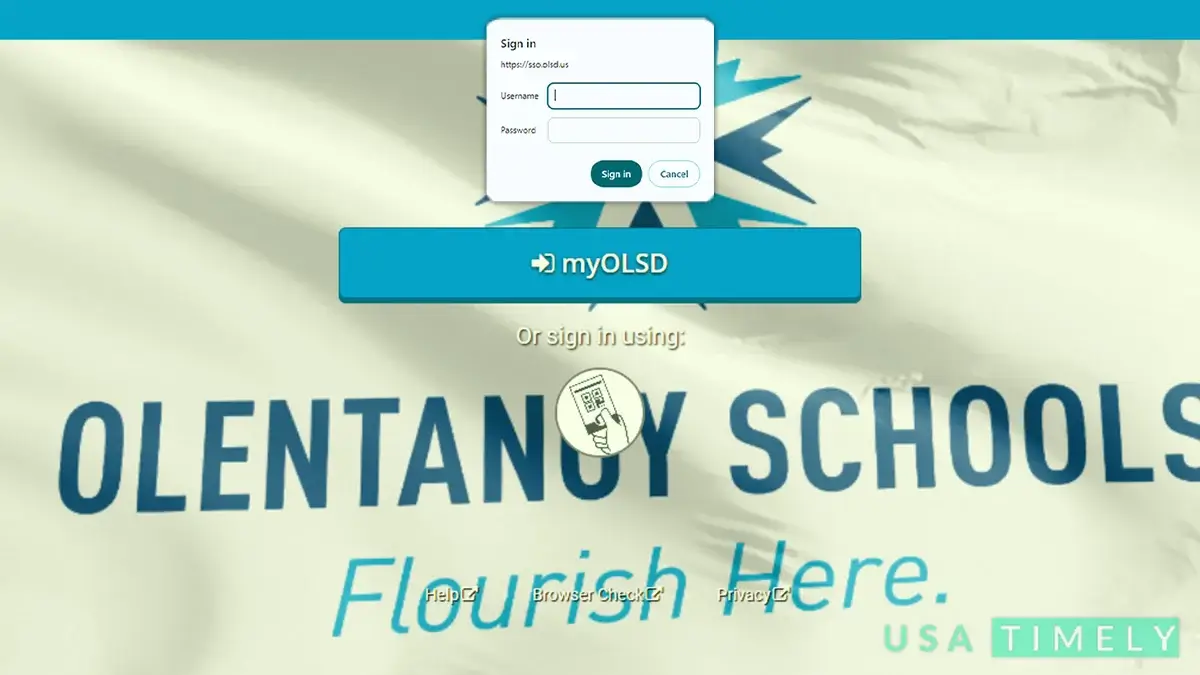
Online platforms play a crucial role in the field of education, facilitating seamless communication, efficient administration, and enhancing the learning experience. One standout platform in this regard is MyOLSD, used by the Olentangy Local School District (OLSD), which serves over 22,000 students across 22 schools. OLSD provides exceptional educational opportunities and fosters an efficient learning community. MyOLSD serves as a secure online portal, benefiting parents, students, and staff by providing access to essential resources and information.
This guide will walk you through the features of MyOLSD, how to navigate it, including the webmail login procedures, the myOLSD.us login variant, and the myOLSD portal. It will also cover key portals and valuable resources available within the digital platform. Join us on a smooth journey through the educational landscape of the Olentangy Local School District.
About Myolsd
The Olentangy Local School District (OLSD), known as MyOLSD, is a prominent school district in Ohio, USA, serving over 22,000 students across 22 schools. It is dedicated to providing exceptional educational opportunities and fostering an efficient learning community. MyOLSD serves as a secure online portal, offering parents, students, and staff access to essential resources and information.
The Olentangy District Schools manage the online learning platform, my.olsd.us, which provides access to fifteen elementary schools, five middle schools, and four high schools via ClassLink. Teachers and students utilize the portal for various assignments and learning opportunities, finding it more comprehensive than other options. This platform is designed to significantly enhance your child’s educational experience.
Overview of the Local School District in Olentangy
The Olentangy Local School District is dedicated to creating the best possible learning environment for each student. This commitment guides all decisions and actions within the district. The primary objective is to instill fundamental principles in students’ lives, encompassing moral and cultural values, cognitive development, and social integration. Ultimately, this approach aims to nurture responsible citizens for the future.
How Do I Sign Up for the MyOLSD Portal?
To sign up for the MyOLSD Portal, students need to obtain their usernames and passwords from the administration. Upon registration, the admin department provides students with these credentials, granting access to the portal through ClassLink.
It’s important to note that students cannot self-register for the portal. They must contact the administration to receive their usernames and passwords in order to fully utilize this platform.
Requirement for Login
To access the MyOLSD portal, users must meet the following requirements:
- Access to the official MyOLSD website.
- Special username and password for OLSD.
- A reliable web browser.
- A tablet, laptop, smartphone, or desktop computer.
- Steady and dependable internet access.
Once these conditions are met, users can log in to the MyOLSD platform.
MyOLSD Login: The Key to Educational Excellence
Logging into the MyOLSD portal is the first step toward accessing a wealth of educational resources and tools. Here’s a guide on how to navigate the login process:
- Navigate to the MyOLSD US Login Page: Visit the official website of the local school district or use the district’s website: https://www.olentangy.k12.oh.us/. Look for the “MyOLSD portal” link in the right corner of the homepage.
- Choose Your Login Method: There are two methods of login available.
-
- ClassLink: This option requires ClassLink credentials and is used to access school resources and applications. Enter your username and password in the first option to access your account.
- Quick Card: This option is available for students and staff. Your 12-digit digital number code is printed on the issued physical quickcard. Simply enter this number and your PIN to access your portal.
- Enter Your Credentials: Use the search bar to enter the URL or type “myolsd.us login.” Select the desired login method and enter your username and password or quick card details.
- Sign In & Explore!: After entering your authentic credentials, click “Sign In.” You will be successfully logged in, and the MyOLSD dashboard will be generated, granting you access to a variety of educational tools and resources.
How Do I Reset Myolsd Password for Login?
If parents or students need to reset their ClassLink login credentials, they cannot do so themselves. Instead, they should contact the administrative team promptly to ensure no information is lost. To reset your MyOLSD login credentials, please use the following contact details:
- Contact Number: 740-657-4050
- Fax: 740-657-4099
- Contact Address: Olentangy Schools, 7840 Graphics Way, Lewis Center, OH 43035, Olentangy School District.
Benefits of Myolsd Portal
The MyOLSD Portal offers several benefits for teachers, parents, and students alike:
- Parental Monitoring: Parents can easily monitor their children’s academic progress through the portal. They can also use specific features to create groups with other parents and instructors, with administrators overseeing group activities and addressing any issues that arise.
- Teacher Features: Instructors can track student activities, share study materials, and provide useful links. They can also use the portal to manage their groups and ensure smooth communication with parents.
- Student Access: Students can access course materials, complete assignments, and track their academic progress. The portal’s calendar tool allows them to stay organized by displaying important tasks and assignment deadlines.
Overall, the MyOLSD Portal serves as a comprehensive platform that enhances learning and simplifies monitoring for parents and teachers.
Key Apps for the Myolsd Classroom Connection
The MyOLSD ClassLink app provides access to several key apps for students, including:
- CodeStart
- DropBox
- ScootPad
- Britannica Digital Learning
- Edmodo
- MobyMax
- Follett
- PBS Kids
These apps offer a range of educational resources and tools to enhance the learning experience for children using the MyOLSD platform.
Having Trouble Logging Into MyOLSD
If you’re having trouble logging into MyOLSD on Windows or Mac, try these methods:
Chromebook Login
- Use a Chromebook to log in.
- Sign in with a different account if needed.
- Enter your full email address (e.g., xyz@olsd.us) and password when prompted.
- Use the new window to access various resources, including Schoology and Powerschool.
Windows Users Accessing Schoology OLSD
- Type Schoology.com in your browser’s search bar.
- Click the “SSO Login” button below the “Forget Your Password” option.
- Search for your school’s name.
- Select “Login.”
Following these steps, you can access Schoology without using the MyOLSD Portal.
Olentangy PowerSchool Access
If you’re having trouble logging into the main MyOLSD portal, you can still access PowerSchool using the following steps:
- Type “PowerSchool for Parents or Students” in your web browser’s search box.
- Enter your username and password, whether you’re a parent or a student.
- You should be able to access PowerSchool successfully.
Key Portals of myOLSD
The Olentangy Local School District provides key portals within myOLSD to serve specific purposes:
- PowerSchool: This portal allows parents and guardians to view their children’s grades, attendance records, assignments, and school schedule. It also facilitates communication between students, staff, and teachers. Even if you’re having trouble logging into the main portal, you can still access myOLSD PowerSchool by following these steps:
-
- Input “PowerSchool for Parents or Students” into your web browser’s search box.
- Enter your username and password.
- You’ll be able to access PowerSchool successfully.
- Schoology: This portal is used for virtual classrooms, facilitating discussions, accessing course materials, and communication between teachers and students. To access Schoology:
-
- Enter Schoology.com in your search bar.
- Click the “SSO Login” button under the “Forget Your Password” button.
- Search for your school’s name.
- Click “Login.”
- Family Portal: This section is specifically for parents and guardians to view important announcements, school calendars, and communicate with school staff regarding their child.
- Staff Portal: Exclusively for district staff, this portal allows them to manage lesson planning, grade books, and communicate with other staff members, parents, and guardians for student development.
Additional Resources
In addition to the MyOLSD portals, there are valuable resources available for the digital portal community:
- News & Announcements: Stay informed about district news, events, and important updates.
- Schedules: Access school schedules, athletic timetables, and local community events.
- Transportation: View transportation details, including bus routes and stop information for students.
- Lunch Menus: Plan meals with access to school lunch menus.
- Contact Information: Find contact details for schools, offices, departments, and district faculty.
Final Words
MyOLSD serves as a central hub for communication and connection within the Olentangy Local School District. It provides students with access to technological innovations, making studying more efficient and engaging. From the simple sign-in process to the dynamic features of the portal, such as ClassLink and PowerSchool, MyOLSD engages students, parents, and staff by providing access to essential information and resources, creating a connected and informed learning environment.
Benefits of MYCSULB for Students
Whether you’re checking grades, communicating with instructors, or staying updated on school events, MyOLSD is your all-in-one resource for navigating the Olentangy Local School District. Sign in today and explore the abundance of possibilities within this valuable online portal!
Education
Edgenuity Earth and Space Science Answers: The Complete Guide for Students
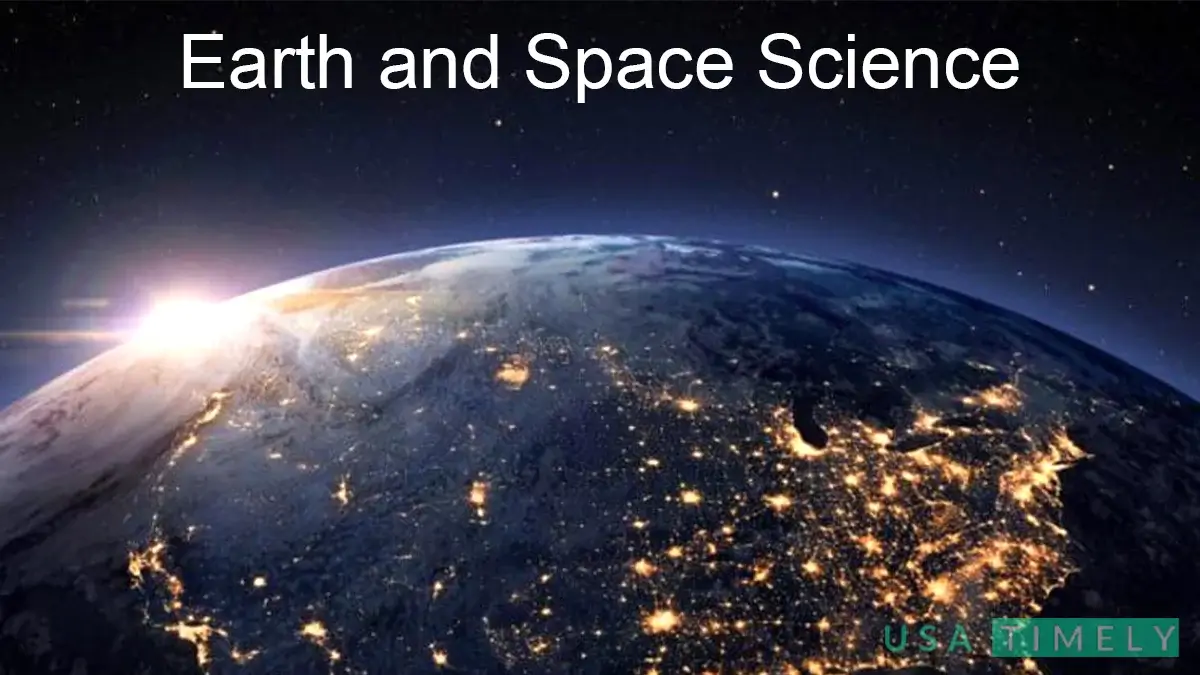
If you want to improve your knowledge and understanding of earth and space science by researching Edgenuity Earth and Space Science Answers, we have something special for you on the article. You will receive a thorough outline, including guidance on the fundamental principles of science and Edgenuity’s course syllabus for this subject. Before we go into the details, let us first briefly introduce the Edgenuity platform. This is an introduction to Edgenuity study guides; if you are already familiar with the platform, you may move to the next lesson.
What is Edgenuity?
Edgenuity (formerly dubbed Education2020 from 1998 to 2013) is an online learning technology developed by Imagine Learning. It assists kindergarten through 12th grade students with various subjects, including core coursework, electives, credit recovery, technical, and career courses. It provides both easy and fast learning alternatives.
Understanding Edgenuity Earth & Space Science Answers Exam Curriculum
Edgenuity offers a course called Earth and Space Science to students in grades 9 through 12.
In this hard course, students build on what they learned in middle school to explore Earth and space scientific Edgenuity answers in greater depth. They develop a better understanding of the universe, Earth’s history, weather, and much more. After enrolling on the Edgenuity platform, you will be exposed to real-world examples, hands-on projects, and interactive lab simulations. There are also in-school lab opportunities to help students study more practically. Students will have a solid foundation for understanding what distinguishes Earth and how other planets in our solar system differ.
Edgenuity Study Guide – Getting to Know the Platform & Course
The Edgenuity platform offers a user-friendly interface with a calendar-based learning system. When you join a course, you can view the instructions, quiz, and warmup dates. For Edgenuity Earth and Space Science, you’ll need to navigate through different learning sessions to find answers. The platform also provides a detailed performance report. Find out more about the platform below.
Edgenuity Earth and Space Science questions are categorized by Edgenuity examiners and instructors. Your grades are based on various activities. Assignments account for 10% of your grade, so completing them is crucial. Labs do not count toward your grade. Lesson quizzes make up 20% of your grade, so it’s important to do well on them. The largest part of your grade comes from unit tests, which make up 50%. Cumulative exams, which cover all your learning, count for 20%. There’s also an extra category that doesn’t impact your grade. To do well in the course, it’s important to keep up with assignments, perform well in quizzes and tests, and prepare for cumulative exams.
How to Find Resources for Edgenuity Earth and Space Science Answers
You can find Edgenuity Earth Science study resources on the Edgenuity platform. The platform provides various tools and information to help you study effectively. Additionally, your school’s library or a conversation with your teacher can offer valuable resources to support your studies.
We have also compiled an Edgenuity Earth and Space Science answer guide relevant to the syllabus. However, since we don’t have access to the exact questions from Edgenuity exams, the questions provided below are based on research on Earth and Space Science topics. Please note that these answers are not for the actual Edgenuity exam but are created to build a foundation on the topic to help you learn more about Earth and Space Science. You can also search for different guides for more ideas related to the Edgenuity Earth and Space Science answers below. Let’s get started.
Top Questions and Answers for Edgenuity Earth and Space Science
The following are the questions and answers for the Edgenuity Earth and Space Science course and test. The questions begin with basic concepts and progress to more intermediate and challenging issues in edgenuity earth science answers.
Why is glass not a mineral?
Glass is not considered a mineral because it is not naturally occurring; instead, it is a product made through extensive processing. It is manufactured using natural raw materials.
What are two ways diamonds are useful?
Diamonds, derived from processing natural rock, are valuable for both jewelry and practical applications due to their hardness, scoring a 10 on the Mohs Scale.
How do minerals form by evaporation?
Minerals are formed when water evaporates, leaving behind crystal structures.
For a mineral to be a gem, what does it require?
To be classified as a gem, a mineral must possess qualities such as beauty, durability, portability, and rarity.
What is magma?
Magma is a molten mixture of gases, rock substances, and water from the mantle found beneath the Earth’s surface.
What do Ilmenite & rutile have that classify them as Ores?
Ilmenite and rutile are considered ores because they are extracted from heavy mineral sands, predominantly for commercial purposes, as they contain titanium.
What is Luster?
Luster is a property used by mineralogists to identify minerals based on their surface reflection, caused by the refraction of light.
What are the properties that help identify minerals & gems?
Minerals and gems are identified based on characteristics such as color, density, hardness, luster, and magnetism, as well as cleavage, fracture, and special properties.
What is the process of crystallization?
Crystallization refers to the formation of solid crystals from a solution, occurring when the conditions of solubility of the solute in the solvent change.
What are three qualities of titanium that make it good for hip or knee replacements?
Titanium is chosen for replacements due to its durability, lightweight nature, and non-toxic properties.
Ethical Concerns & Academic Integrity
To maintain ethical standards and respect Edgenuity’s rights, it’s important to use the provided content for educational purposes only and ensure fair use. The answers to Edgenuity Earth and Space Science questions belong to the platform, and it’s crucial to be honest in your approach to learning. Using Edgenuity ensures a genuine understanding of the material, which aligns with the primary goal of education.
Key Takeaways
Studying the concepts provided above will help you prepare efficiently for the Edgenuity Earth and Space Science examinations. The questions covered fundamental ideas, starting with how minerals are collected from the Earth and going to space science, which includes galaxies and cosmic occurrences.
We also talked about the Earth’s atmosphere and how it protects against solar radiation, as well as other space-related issues. Mastering these ideas from our Edgenuity Earth and Space Science materials can yield positive results and lay a solid foundation for future research in this discipline.
Education
Two Headed Calf Poem By Laura Gilpin
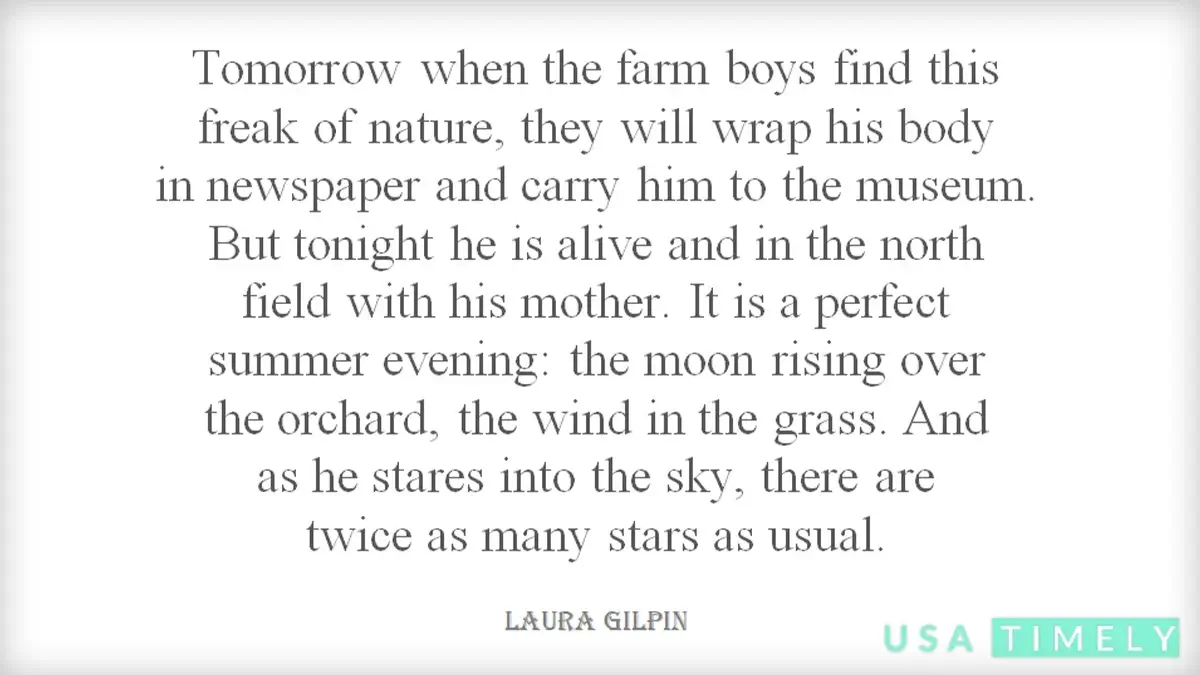
If you’ve ever found yourself curious about the meaning behind the two-headed calf poem, you’ve stumbled upon the perfect discussion.
This poem has made its rounds on the Internet more times than one can count, and it holds a special place among my all-time favorites. The beauty of poetry lies in its ability to resonate differently with each reader, leaving a unique and lasting impression.
An Overview of Two-Headed Calf by Laura Gilpin
Exploring Laura Gilpin’s “Two-Headed Calf” poem reveals layers of interpretation and personal reflection. Let’s get into its significance and consider the various emotions and insights it evokes.
As we dive into this poem today, it’s natural to experience a range of emotions or perhaps even none at all. Each reader brings their own perspective, allowing for diverse reactions and interpretations. That’s the beauty of poetry—it invites us to find our own meanings and connections.
In Gilpin’s poem, themes of uniqueness, acceptance, and resilience emerge. The image of a two-headed calf challenges traditional notions of normalcy, prompting us to reconsider our perceptions of difference and individuality. Through the lens of this unusual creature, the poem invites us to embrace diversity and celebrate the inherent value in every being, regardless of how they may deviate from the norm.
The two-headed calf serves as a symbol of imperfection, yet within its unconventional existence lies a certain beauty and strength. Gilpin’s portrayal encourages us to look beyond surface appearances and recognize the inherent worth and dignity within all living beings. It’s a poignant reminder that perfection is not a prerequisite for appreciation or love.
Moreover, the poem celebrates life’s eccentricities and anomalies as integral aspects of the human experience. Just as the two-headed calf navigates its existence with grace and resilience, so too can we embrace our own quirks and idiosyncrasies. By embracing the diversity of life, we open ourselves to a richer, more vibrant tapestry of existence.
Why Poetry Holds Significance?
Poetry possesses a unique enchantment, capable of infusing life with depth and richness beyond compare.
Amidst the deluge of business-oriented content, stumbling upon a well-crafted poem is akin to discovering a hidden oasis in a desert of uniformity. Poetry offers a refreshing departure from the mundane, igniting our imaginations and reshaping our perspectives.
Whether navigating the highs and lows of love, confronting life’s complexities, or simply seeking solace amidst inner turmoil, poetry serves as a guiding light. It provides a sanctuary where we can make sense of our emotions and find solace in shared experiences, fostering a sense of connection and understanding.
In a world inundated with information overload, poetry offers a tranquil refuge—a space where we can pause, reflect, and immerse ourselves in the beauty of language. It beckons us to slow down, savor each word, and experience the profound depths of human expression.
Poetry stands as a rebel within the literary realm, defying conventions and daring to articulate truths in ways that prose cannot. Its unconventional nature challenges us to embrace ambiguity, confront discomfort, and explore the vast expanse of human thought and emotion.
The length of a poem matters little in comparison to its potential impact. Whether brief or extensive, a well-crafted poem possesses the power to transcend boundaries, leaving an indelible mark on hearts and minds across the globe.
Today, we will explore a short yet enduring masterpiece—a poem spanning mere lines yet resonating deeply with audiences worldwide. Its enduring popularity attests to the timeless allure and enduring relevance of poetry in our lives.
Stumbling Upon the Two-Headed Calf Poem
It was one of those nights, lost in the depths of Twitter during the eerie hours of the early morning, that I stumbled upon this poem.
Perhaps it was the weariness of the late hour, or maybe it was my profound affection for animals, but something about the poem’s composition struck a chord within me. In that moment, overwhelmed by exhaustion and emotion, the poem pierced through my defenses, bringing tears to my eyes instantaneously.
For days afterward, the poem lingered in my thoughts, evoking a profound emotional response each time it crossed my mind. Its poignant imagery and raw honesty had touched something deep within me, resonating with my innermost feelings and experiences.
The sheer impact of the poem left an indelible mark on my memory, serving as a poignant reminder of the enduring power of poetry to evoke emotion and provoke introspection. It was a testament to the beauty and significance of this timeless art form, reaffirming its place in our lives as a source of solace, inspiration, and connection.
This experience reinforced my belief in the beauty and importance of poetry. Its ability to reach into the depths of our souls and stir our emotions is unparalleled, reminding us of the profound impact that art can have on our lives.
Understanding the Two-Headed Calf Poem by Laura Gilpin
Poetry: A Medium of Deep Expression
For ages, poetry has served as a powerful channel for conveying complex emotions, innovative ideas, and critiques of society. Among these impactful works stands Laura Gilpin’s “Two-Headed Calf,” a piece that has etched its place in the annals of poetic history.
The Essence of Gilpin’s Work
First published in 1977 within her celebrated poetry collection, “The Hocus-Pocus of the Universe,” Gilpin’s poem extends an invitation to readers to explore its rich layers. The poem navigates through themes of identity, acceptance, concern for animal rights, and the relentless march of change, offering profound insights into each.
A Legacy Remembered
Perhaps unintentionally, “Two-Headed Calf” has become one of Gilpin’s most memorable works, a testament to its enduring relevance and the universal themes it addresses. Through this poem, Gilpin has left an indelible mark on the landscape of poetry, prompting readers to reflect deeply on the nature of existence and the world around us.
Meaning of the Two-Headed Calf Poem
At its surface, the poem describes a two-headed calf that, tragically, won’t survive past morning.
Typically, a two-headed calf only lives a few hours, with the record being 40 days—a starkly brief existence.
Yet, getting deeper into the poem’s significance reveals a tapestry of themes and concepts waiting to be explored.
Examining the Imagery in the Two-Headed Calf Poem
The poem opens with a vivid portrayal of a two-headed calf, instantly grabbing the reader’s focus. This extraordinary creature functions as more than just a literal depiction—it’s a metaphor, symbolizing uniqueness and individuality.
The two heads, separate yet linked, reflect the inherent duality found in human nature and interpersonal connections.
Gilpin urges us to contemplate the embrace of these disparities, prompting a deeper examination of diversity.
Metaphorical Representation of Identity
As the poem progresses, it becomes evident that the two-headed calf isn’t just a strange biological anomaly—it serves as a metaphor for the intricate layers of human identity.
Each head symbolizes a different aspect of the self, highlighting the complexity that defines our personalities.
Gilpin urges us to accept and value the diverse elements that contribute to making each individual complete.
Reflecting on the Passage of Time
The poem subtly delves into the passage of time and the unavoidable nature of change.
Its setting brings forth a feeling of temporariness, placing the calf’s extraordinary life within the grand scheme of life’s brief moments.
Embracing Acceptance and Resilience
“Two-Headed Calf” prompts us to think deeply about acceptance. In a society that frequently values sameness, the poem champions the celebration of diversity and the recognition of beauty in our differences.
The calf, with its unique physical condition, emerges as a beacon of resilience and the ability to adapt.
Gilpin pushes us to question our prejudices and assumptions, advocating for a world that embraces inclusivity and compassion.
Navigating Interpretative Ambiguity
A key strength of the poem is its open-endedness, which invites readers to find their own meanings and connections. The two-headed calf serves as a blank canvas, allowing people to overlay it with their personal experiences and viewpoints.
For some, it may mirror individual challenges, while for others, it could reflect broader societal discussions on marginalized communities.
This ambiguity enriches the poem’s lasting appeal and enables it to engage with a wide range of readers.
Embracing Life’s Transience
Another interpretation of the poem revolves around the brevity of life and the importance of cherishing every moment. Despite its short existence, the two-headed calf finds joy in the simple pleasures of life, such as spending time with its mother and marveling at the beauty of the stars.
This perspective encourages readers to appreciate the fleeting nature of life and to find beauty in the small moments, even amidst adversity. It serves as a poignant reminder to seize the day and embrace the richness of each passing moment.
Reflecting on “Two-Headed Calf”
“Two-Headed Calf” stands as a profound meditation on identity, acceptance, and life’s ephemeral quality. Through Laura Gilpin’s evocative verses, the poem invites us to examine our views on self and society, prompting a richer appreciation for the intricate tapestry of existence.
Reading the poem naturally leads one to ponder their life and the things often overlooked or taken for granted.
For me, beyond the poignant reminder to cherish every moment, the poem, through its depiction of the calf’s brief existence, struck a chord with my love for animals. It was heart-wrenching to consider the life of this creature, quickly labeled as an anomaly, despite the unique beauty and perspective it brought to the world, however short-lived.
Education
Understanding When to Use “A Unique or An Unique” in English
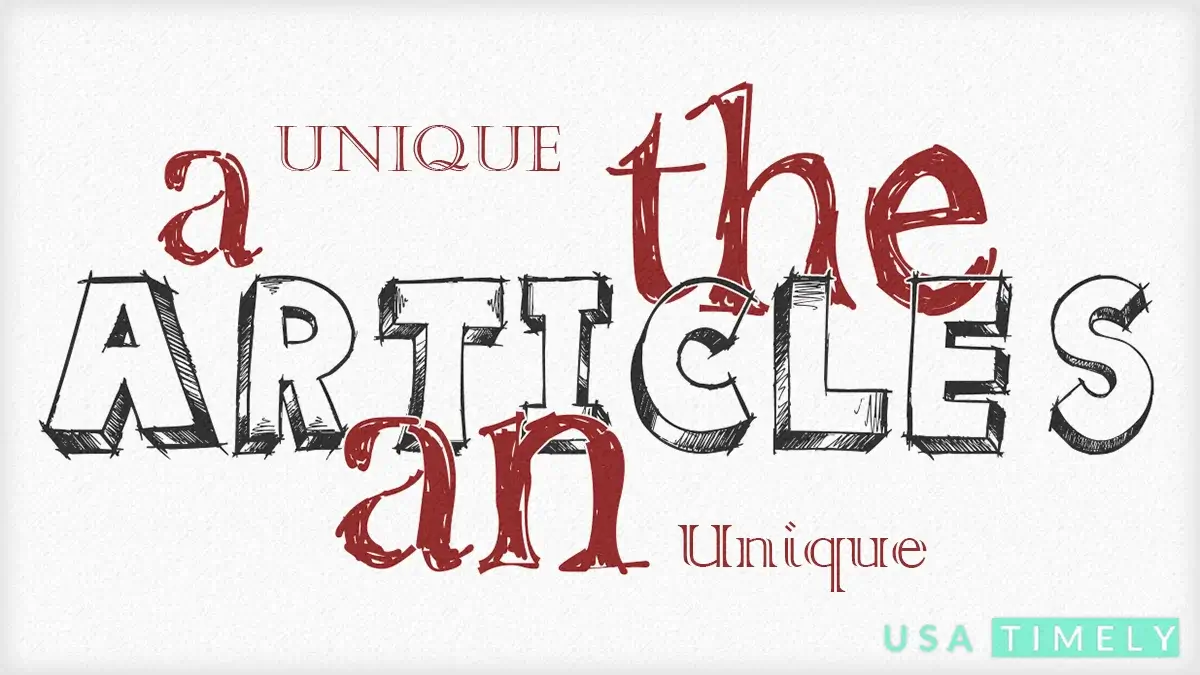
Using articles in English can be tricky, especially with words like “unique.” People often wonder whether to use “a” or “an” before “unique” because it starts with a vowel sound. However, the rule is a bit more complex. This article will explain when to use “a unique or an unique” in English, making it easier to understand.
Understanding the Meaning of “a unique or an unique”
Defining “Unique”
“Unique” is an adjective used to describe something that is one of a kind, unparalleled, or distinct in some way. When we say something is unique, we are emphasizing its singular and exceptional nature.
Emphasizing Individuality
The term “unique” highlights the individuality and distinctiveness of an object or concept. It suggests that there is nothing else quite like it, making it stand out from the rest.
Contextual Significance
Understanding the meaning of “a unique or an unique” is crucial as it helps us appreciate the special qualities of things or ideas that are unlike anything else. It allows us to recognize and celebrate the exceptional aspects of the world around us.
Examples of “Unique”
- A painting that is the only one of its kind in the world is considered unique.
- The way each snowflake has its own intricate design showcases the uniqueness of nature.
- The concept of each person having a unique fingerprint illustrates individual distinctiveness.
Importance in Language
In English, “unique” is often used to emphasize the rarity or exceptional nature of something. It adds depth and specificity to our descriptions, allowing us to convey a greater sense of the subject’s special qualities.
The definition of “a unique or an unique” in a dictionary is not the only meaning to be understood. It helps us appreciate the diversity and special characteristics of the world, enriching our experiences and interactions with the people and things around us.
The Rule of Indefinite Articles
Understanding Articles
Words that determine whether a noun is specialized or general are called articles. There are two different kinds of articles in English: indefinite articles (a/an) and definite articles (the).
The Choice Between “A” & “An”
The decision between “a” and “an” is based on the sound that comes after the article rather than the particular letter. When words start with a consonant sound, “a” is typically used before them, while when words start with a vowel sound “an” is used before them.
Example Usage
- “A car” (the word “car” starts with a consonant sound)
- ” An apple (the vowel sound “apple” is the first sound in the word)
Importance in Grammar
Understanding the use of articles is important for forming correct sentences in English. Using the correct article can change the meaning of a sentence or clarify whether you are referring to something specific or general.
Practical Application
When unsure whether to use “a” or “an,” remember to focus on the sound that follows the article, not just the letter at the beginning of the word.
Using “A” Before “Unique”
Understanding the Pronunciation
Despite starting with the letter “u,” the word “unique” actually begins with a consonant sound, like “y” in “you-neek.” This pronunciation determines the correct article to use before “unique,” which is “a.”
Correct Usage
For example:
- I saw a unique painting at the art gallery.
- She views the problem from a distinct angle.
Common Mistakes with “An Unique”
Sound, Not Letter
While it might seem logical to use “an” before words starting with a vowel, the crucial factor is the sound that follows the article. Since “unique” begins with a consonant sound, using “an” before it is grammatically incorrect.
Incorrect Usage
Phrases like “an unique” are considered incorrect in standard English usage.
Exceptions to the Rule
Informal Usage
In some dialects or informal speech, you might encounter “an unique.” However, in formal writing and standard English, it is best to stick to using “a” before “unique.”
Regional Variations
In certain regions or dialects, the use of “an unique” may be more accepted. However, in formal writing and standard English, it is still generally considered incorrect.
Importance of Proper Article Usage
Understanding when to use “a” or “an” before “unique” is essential for clear and correct communication. Using the correct article helps to convey your meaning accurately and ensures that your writing is grammatically sound.
FAQs About Using “A Unique or An Unique”
Is it correct to say “an unique” in English?
No, the correct article to use before “unique” is “a” because the word starts with a consonant sound.
Why is the pronunciation of “unique” important in determining the article to use?
The choice between “a” and “an” depends on the sound that follows the article, not the letter itself.
Are there any exceptions to using “a” before “unique”?
While “a unique” is sometimes used in particular dialects or informal speech, it is recommended to use “a unique” in professional writing and Standard English.
What does the word “unique” mean?
“Unique” describes something as being one of a kind, unparalleled, or distinct in some way.
How can understanding the use of articles enhance your writing?
Understanding the correct use of articles can improve the clarity and accuracy of your writing, making your message more effective.
Final Takeaway
Understanding when to use “a” or “an” before a word like “unique” can be crucial in English grammar. While “unique” does begin with a vowel letter, its pronunciation starts with a consonant sound, specifically the “y” sound. This distinction is important because choosing the correct article not only affects the grammatical correctness of your sentence but also impacts how your message is interpreted.
Using “an” before “unique” might seem logical because of the initial vowel letter, but it would actually be incorrect. Saying “an unique” would sound awkward and could confuse the reader. On the other hand, using “a” before “unique” sounds natural and aligns with standard English usage.
Correct usage of articles is a subtle yet significant aspect of language that can greatly impact the clarity and professionalism of your writing. By understanding the pronunciation rules behind articles, such as when to use “a” or “an,” you can ensure that your writing is not only grammatically correct but also effectively conveys your intended meaning.
Education
2023-1954: From Numbers to Cybersecurity Vulnerabilities
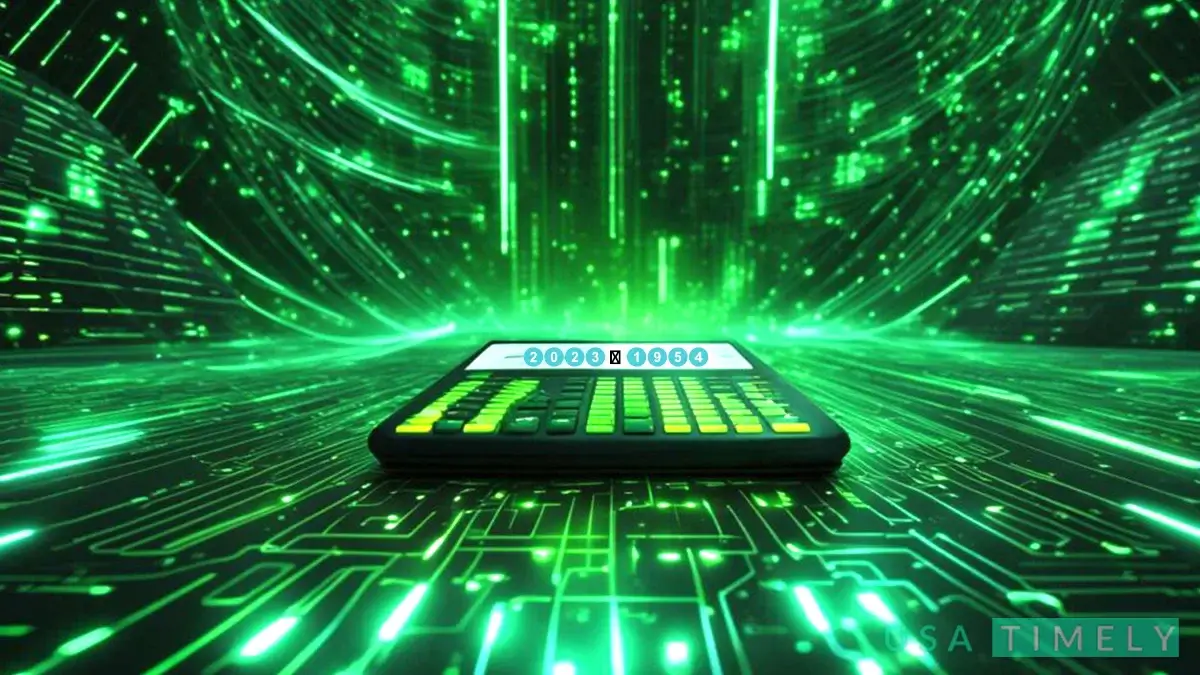
Hop into the time machine, folks, because we’re about to take a wild ride through the years 2023 and 1954! We’re diving deeply into the intriguing world of 2023–1954, revealing obscure treasures and investigating unusual phenomena as we go. From crunching numbers to calculating your age in future years, we’ve got everything covered for you.
Let’s kick things off by converting this numerical combo into a percentage. Now, I know math might not be everyone’s cup of tea, but trust me, this is going to be fun! We’re taking these two years and finding out what percentage 2023 is of 1954. It’s like solving a puzzle but with numbers!
Next up, let’s talk about calculating your age in the future years. It’s like peeking into a crystal ball and seeing how many candles you’ll be blowing out on your next birthday! Whether you’re curious about how old you’ll be in 2025 or 2030, we’ve got the tools to figure it out.
However, it’s not only about computations and numbers. We’re also going to get into the culture, trends, and events of these two eras. From the vibrant energy of 2023 to the nostalgic charm of 1954, there’s so much to explore and discover.
So, are you ready to join me on this time-traveling adventure? Grab your hat and buckle up because we’re about to get on a journey through the ages, uncovering hidden treasures and unraveling the mysteries of 2023-1954!
Turning 2023-1954 into a Percentage: A Simple Guide
Ever caught yourself pondering how to spin the numbers 2023-1954 into a percentage? Well, wonder no more! Transforming these figures into a percentage is straightforward and paves the way for endless exploration and comparison.
Step-by-Step Conversion
Firstly, let’s tackle the conversion. Start by dividing 2023 by 1954. This division crunches out a decimal that represents how these two numbers relate to each other. But don’t put your calculator away yet, we’re only getting warmed up!
Next up, take that decimal and give it a little nudge, multiply it by 100. This magic move shifts our decimal into a percentage, giving us a fresh perspective on how these years stand shoulder to shoulder. And there you have it, a snazzy percentage to showcase the relationship between 2023 and 1954.
This might seem like a bit of numerical gymnastics, but it’s actually a powerful tool. Whether you’re knee-deep in finance, statistics, or just trying to make sense of different data points, converting numbers into percentages can shed light on their relative importance or impact.
So, the next time you stumble upon the numbers 2023 and 1954 side by side, remember this trick. Turning them into a percentage not only unveils a new way to view their connection but also unlocks a treasure trove of insights waiting to be discovered.
Exploring Different Methods for Converting 2023/1954 into a Percentage
Converting 2023/1954 into a percentage might seem like a tricky task, but fear not! There are numerous strategies you could employ to reach this mathematical accomplishment. Let’s now look at a few of them:
Method 1: Basic Division and Multiplication
The first method involves some good old-fashioned arithmetic. Start by dividing the numerator (2023) by the denominator (1954). This will give you a decimal representation of the ratio between the two numbers. But hold on, we’re not done yet!
Once you’ve got your decimal, it’s time to transform it into a percentage. To do this, multiply the decimal by 100 and add the percent symbol (%) at the end. And just like that, you’ve converted 2023/1954 into a percentage!
Method 2: Utilizing Online Tools
If you’re not a fan of manual calculations, fear not! There’s a simpler way. You can hop online and use one of the many calculator websites or spreadsheet software available. These tools can swiftly perform the division and multiplication for you, leaving you with the percentage in no time.
Whatever strategy you choose, remember that practice makes perfect. The more you engage with these calculations, the easier they’ll become. So don’t be discouraged if it takes a couple of attempts to get it right and soon you’ll be a percentage-converting pro!
Discovering Your Future Age: If You Were Born in 1954, How Old Will You Be in 2023?
Ever wondered how old you’ll be in the future? Thinking about it is fascinating, particularly if you’re from a different era. If your birth year is 1954 and you’re curious about your age in 2023, we’ve got just the tool for you: the Future Age Calculator!
Calculating Your Future Age
Finding out your age in a specific year is a piece of cake. Simply subtract your birth year 1954 from the desired year e.g. 2023. This straightforward calculation reveals how many years have ticked by since your birth, giving you a glimpse into your age for that particular year.
But wait, there’s more to it than just numbers!
Embracing the Journey
The Future Age Calculator isn’t just about crunching numbers, it’s about reflecting on your life’s journey. It’s a chance to marvel at how far you’ve come and all the experiences and memories you’ve gathered along the way.
So, go ahead and give the Future Age Calculator a whirl! Discovering your age in 2023 might spark some intriguing thoughts and insights into what the future holds. Embrace the excitement of exploring time and relish every moment of this captivating journey!
The Simple Trick to Calculate Your Future Age
Curiosity about our age in future years is a universal feeling, especially as we approach major milestones like retirement. Luckily, there’s a straightforward formula to figure out exactly how old you’ll be in any given year.
Crunching the Numbers
To find out your age in a specific year, you just need to do a little subtraction. Take the year you’re interested in and subtract the year you were born. So, if you’re looking to figure out your age in 2023 and you were born in 1954, you’d subtract 1954 from 2023. The difference gives you your age for that year.
But there’s a way to get even more precise. If you factor in the month and day of your birth, you can calculate how many days, months, or even hours into the year you’ll reach your new age. This step ensures you account for the exact amount of time since you celebrated your last birthday.
This formula isn’t just about numbers; it’s a gateway to planning and dreaming about the future. Knowing your age in future years can add a dash of excitement to your plans, whether you’re looking forward to retirement or just curious about what the future holds.
So, the next time you’re pondering, “If I was born in 1954, how old will I be in 2023?”, you’ve got the formula to find out quickly. Impress your friends with your quick calculation and enjoy diving into the possibilities that lie ahead in your journey!
Navigating the Waters of Cybersecurity: The ALAS-2023-1954 Vulnerability in Amazon Linux 2
As we journey through the numerical adventures of 2023-1954, from crunching ratios to calculating ages, let’s pivot to a more pressing issue: cybersecurity. A prime example is the recent discovery of a vulnerability in Amazon Linux 2, known as the nss-util vulnerability (ALAS-2023-1954).
The Heart of the Matter: Understanding ALAS-2023-1954
Cybersecurity has soared in importance as technology evolves, bringing to light new vulnerabilities hackers are eager to exploit. The spotlight today is on the ALAS-2023-1954 vulnerability within Amazon Linux 2, a critical issue affecting the nss-util package that’s pivotal for SSL/TLS certificate validation.
Stay Safe, Stay Updated
To shield your systems and data from such vulnerabilities, it’s vital to stay on top of these developments. Regularly updating your systems with the latest security patches is a key step in this ongoing battle against cyber threats.
Fortifying Your Digital Defenses
But why stop there? Enhancing your network infrastructure with solid security practices can bolster your defenses. This encompasses everything from crafting strong passwords and keeping software up to date to deploying firewalls, using intrusion detection systems, running frequent security checks, and educating your team on safe online behaviors.
Cybersecurity isn’t a one-and-done deal; it’s a continuous fight to stay ahead of threats like ALAS-2023-1954. Embracing proactive security measures and leaning on reputable security solutions can significantly dial down the risks.
As we sail through the fast-paced evolution of technology, prioritizing cybersecurity becomes not just important but essential. By staying informed and adopting effective protection strategies, we can confidently face the challenges of this digital age, keeping threats like the nss-util vulnerability at bay.
Conclusion: Reflecting on Time and Cybersecurity
Our exploration of converting years to percentages and calculating future ages has been a fascinating reflection on time’s passage and our place within it. It’s a stark reminder of how quickly things change, encouraging us to appreciate the present and plan for the future with both excitement and caution.
In parallel, the discussion around the ALAS-2023-1954 vulnerability in Amazon Linux 2 underscores the ongoing importance of cybersecurity. It’s a vivid illustration of the challenges we face in protecting our digital landscapes. As technology advances, so does the sophistication of threats, making it imperative for individuals and organizations alike to prioritize security in our increasingly connected world.
In essence, this journey through numbers and cybersecurity teaches us the value of being informed, prepared, and proactive. Either it’s personal growth or digital safety, the key lies in embracing change, learning from the past, and moving forward with optimism. Let’s take these insights into the future, ready to tackle whatever comes our way with knowledge and resilience.
FAQs
1. What’s the significance of converting 2023 and 1954 into a percentage?
Converting these years into a percentage helps reveal their relationship and provides insights for comparison and analysis.
2. How can I calculate my future age in a specific year?
Subtract your birth year from the desired year to find out your age. You can also factor in the month and day for more precision.
3. Why is cybersecurity crucial in today’s digital age?
With evolving technology, cybersecurity helps protect systems and data from vulnerabilities like the ALAS-2023-1954 in Amazon Linux 2.
-

 Celebrity6 months ago
Celebrity6 months agoMisty Severi – The Breaking News Reporter
-

 Technology6 months ago
Technology6 months agoIntegremos, What is it? Complete Information
-

 Celebrity6 months ago
Celebrity6 months agoBeth Grosshans Husband: Robert Smith
-

 Celebrity5 months ago
Celebrity5 months agoWho is Dr. Zena Al-Adeeb?
-

 Business6 months ago
Business6 months agoBoeing Struggles For Trust Amid Quality Lapses
-
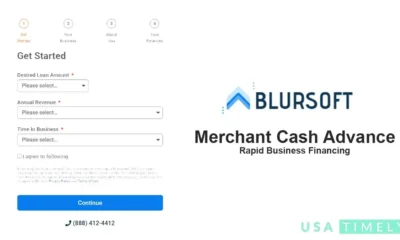
 Finance6 months ago
Finance6 months agoMerchant Cash Advance Blursoft: Rapid Business Financing
-

 Health6 months ago
Health6 months agoKorps Sukarela: Detailed Information
-

 Entertainment6 months ago
Entertainment6 months agoQuentin Tarantino and Brad Pitt Reunite for The Movie Critic
















